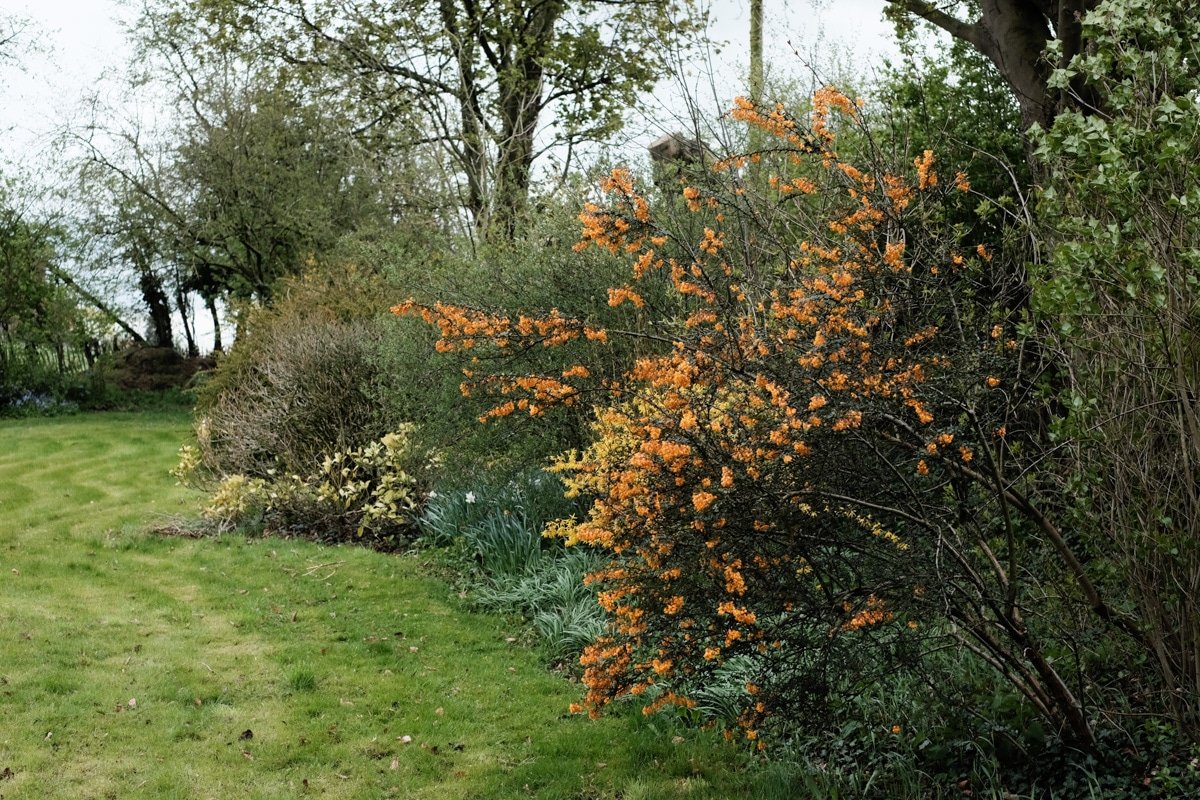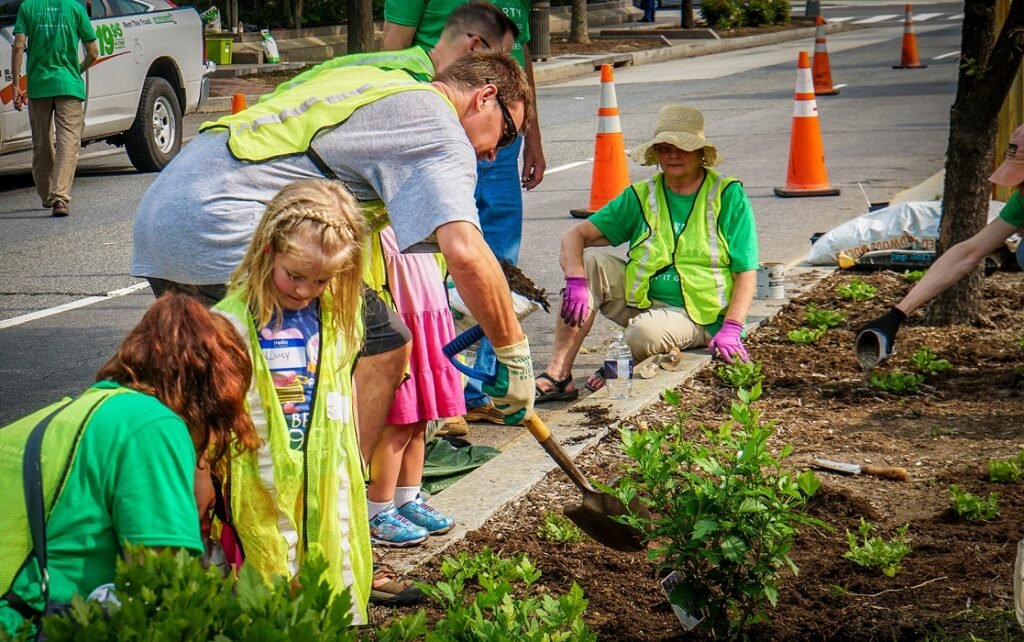Now Reading: The Importance of Sustainability in Foraging
-
01
The Importance of Sustainability in Foraging

The Importance of Sustainability in Foraging
Amidst the captivating vastness of nature lies a centuries-old practice that increasingly captivates the modern world—foraging. Where yawning forests whisper secrets, meandering rivers offer bountiful treasures, and the earth offers up her gifts, foragers find themselves on a quest for sustenance and connection. Yet, as society becomes more entangled in the frenzied pace of progress, it is vital to pause and reflect on the significance of sustainability within the art of foraging. In this article, we delve into the profound importance of sustainable foraging practices and explore the ways in which safeguarding our natural resources sustains not only our nourishment but also our remarkable bond with Mother Earth.
Table of Contents
- Sustainable Foraging: An Essential Practice for a Thriving Ecosystem
- Embracing a Mindful Approach: Balancing Harvesting and Regeneration
- Preserving Biodiversity: The Benefits of Sustainable Foraging
- The Role of Responsible Foraging in Local Communities
- Guidelines for Ethical and Sustainable Foraging Practices
- Q&A
- The Way Forward

Sustainable Foraging: An Essential Practice for a Thriving Ecosystem
Through sustainable foraging, we can nurture our ecosystems while responsibly enjoying nature’s bounties. This vital practice promotes the preservation of plant and animal life, ensuring the long-term health and resilience of our environment. By following a few simple principles, we can make a positive impact on our surroundings while relishing the treasures nature has to offer.
In the realm of sustainable foraging, there are several key concepts to consider:
- Respect for biodiversity: When foraging, it is crucial to respect the diversity of life surrounding us. By gathering a wide variety of different species, we can help maintain the natural balance of the ecosystem. This approach reduces the risk of endangering any particular plant or animal population.
- Harvesting techniques: Adopting sustainable harvesting techniques is fundamental in preserving the environment. By following guidelines such as careful hand-picking, avoiding over-harvesting, and leaving enough plants for reproductive purposes, we can ensure the continuous growth and regeneration of foraged species.
Ultimately, sustainable foraging offers an opportunity to connect with nature in a way that harmonizes with the environment’s needs. By embracing this responsible practice, we foster a thriving ecosystem for both present and future generations to enjoy.

Embracing a Mindful Approach: Balancing Harvesting and Regeneration
In today’s fast-paced world, where progress often takes precedence over sustainability, embracing a mindful approach is crucial. Balancing the act of harvesting resources while ensuring their regeneration is no easy task, but it is essential for the well-being of our planet and future generations.
A mindful approach entails being aware of the impact our actions have on the environment and making conscious choices to minimize harm. It involves finding harmony between meeting our current needs and preserving resources for the future. By practicing mindfulness, we can develop a deeper understanding of the interconnectedness of all living beings and ecosystems, recognizing that our actions have consequences that reach far beyond ourselves.
- Considerate Resource Management: Take stock of the resources we depend on and make informed decisions on their usage. Implement sustainable practices, such as responsible logging, fishing quotas, and water conservation, to ensure their regeneration.
- Promoting Biodiversity: Embrace the importance of maintaining diverse ecosystems and work towards preserving natural habitats. Encourage reforestation initiatives and protect endangered species, recognizing that all organisms play a crucial role in the delicate balance of our planet.
- Community Involvement: Embrace collective responsibility and involve local communities in sustainable initiatives. By fostering education and awareness, we can cultivate a shared commitment to practices that balance harvesting and regeneration, ensuring a sustainable future for all.
Embracing a mindful approach requires a shift in mindset and a commitment to long-term thinking. It is about finding equilibrium between our immediate needs and the preservation of our environment’s integrity, knowing that our choices today shape the world we leave behind. Let us prioritize the harmonious coexistence of humanity and nature, for only through mindfulness can we achieve true balance and ensure a flourishing planet for generations to come.

Preserving Biodiversity: The Benefits of Sustainable Foraging
Exploring the wonders of our natural environment has always been an enlightening adventure. Sustainable foraging, in particular, presents itself as a promising way to connect with nature while preserving biodiversity. This practice involves the careful harvesting of wild plants, fungi, and even certain animal species, with profound benefits for both ecosystems and individuals.
1. Promotes ecosystem balance: Sustainable foraging promotes a delicate balance in ecosystems by mimicking the natural process of herbivory. By selectively harvesting, we can prevent the overgrowth of certain species, allowing other plants to thrive. This in turn benefits the flora and fauna dependent on the foraged plants, ensuring a healthy and diverse ecosystem.
2. Preserves traditional knowledge and culture: Foraging has long been intertwined with indigenous cultures and traditional knowledge. By practicing sustainable foraging, we not only preserve the invaluable information passed down through generations but also honor the cultural heritage associated with nature. This promotes a broader perspective on sustainability and fosters respect for diverse cultural practices.
3. Nurtures local economies: When done responsibly, sustainable foraging has economic benefits for local communities. By ethically harvesting wild products, individuals and communities can generate income through selling responsibly sourced items such as medicinal plants, edible mushrooms, or non-timber forest products. This can create sustainable livelihoods while simultaneously safeguarding fragile ecosystems.
So, immerse yourself in the beauty of sustainable foraging and experience firsthand the transformative power it possesses. By upholding these practices, we can present a sustainable future not only for ourselves but for generations to come.

The Role of Responsible Foraging in Local Communities
Foraging has been a means of sustenance for communities since ancient times, providing a direct connection between humans and the natural world. Responsible foraging goes beyond basic survival - it fosters a deep appreciation for the environment and promotes sustainable practices that benefit both ecosystems and local communities.
In local communities, the role of responsible foraging is multifaceted. Firstly, it allows individuals to access fresh and nutritious food that is often free or at a minimal cost. This can range from gathering fruits, nuts, and mushrooms to fishing and hunting sustainably. By incorporating foraged ingredients into their meals, communities can diversify their diets and reduce the reliance on store-bought products.
Moreover, responsible foraging has various environmental benefits. It encourages people to develop a profound understanding of their surroundings, learning to identify edible plants and animals and recognizing the fragile balance of nature. By foraging responsibly, individuals ensure the preservation of plant and animal populations, mitigating the risk of over-harvesting and protecting biodiversity. Additionally, responsible foraging fosters conservation efforts by instilling a sense of stewardship for local ecosystems.
- Responsible foraging promotes self-sufficiency and reduces dependence on industrial food systems.
- It encourages sustainable and organic practices, reducing the reliance on chemical inputs and promoting a healthy environment.
- By engaging in responsible foraging, communities can strengthen their bond with nature and develop a greater sense of well-being and connection to their surroundings.
In essence, responsible foraging plays a vital role in local communities by providing access to nutritious food, fostering environmental awareness, and promoting sustainable practices. By embracing this age-old tradition in a responsible and respectful manner, communities can not only nourish themselves but also forge a harmonious relationship with the natural world.
Guidelines for Ethical and Sustainable Foraging Practices
Exploring nature’s bounty through foraging can be a fulfilling and sustainable way to connect with the environment. However, it is crucial to approach this practice with a deep respect for nature and a commitment to ethical and sustainable foraging practices. Follow these guidelines to ensure that your foraging adventures leave a positive impact:
- Research and learn: Before heading out, equip yourself with knowledge about local flora and fauna. Understand indigenous species, their habitats, and ecological importance. Stay updated on any protected or endangered plants to avoid accidental harm.
- Harvest responsibly: Never overharvest a species that may be crucial to the ecosystem or scarce in your area. Take only what you need and leave enough for others and wildlife. Remember, healthy populations ensure sustainability for future generations.
- Respect wildlife habitats: While foraging, be mindful of fragile ecosystems and wildlife habitats. Avoid trampling on delicate plants, disturbing nesting areas, or disrupting natural cycles. Observe from a distance and try not to disturb the balance of nature.
- Leave no trace: Embrace the ”leave no trace” principle by minimizing your impact on the environment. Avoid excessive digging, uprooting, or damaging vegetation during your foraging process. Dispose of any waste properly and respect private property.
- Engage with the community: Connect with local foraging communities or knowledgeable experts to learn from their experiences. Share your own knowledge and foster a sense of collective responsibility towards preserving nature’s diversity.
By adhering to these ethical and sustainable foraging practices, we can enjoy the wonders of nature while ensuring that future generations can continue to do so as well. Let’s forge a harmonious relationship with the earth and celebrate the interconnectedness of all living beings.
Q&A
Why is sustainability important in foraging?
Foraging sustainably ensures that we can continue to enjoy the abundance of natural resources without depleting them. It helps maintain biodiversity, promote ecological balance, and protect the ecosystems that support our food sources.
What does sustainable foraging mean?
Sustainable foraging involves ethically and responsibly sourcing wild plants, mushrooms, and other edibles, while considering the long-term impact on the environment. It includes practices such as selective harvesting, leaving enough for nature to regenerate, and respecting local regulations.
How does sustainable foraging contribute to environmental conservation?
By foraging sustainably, we minimize the disruption to ecosystems and reduce our ecological footprint. This helps protect wildlife habitats, preserve native species, and maintain the delicate balance of nature.
How can sustainable foraging benefit local communities?
Sustainable foraging can provide economic opportunities for local communities by promoting small-scale businesses, ecotourism, and traditional knowledge. It encourages a connection with nature and fosters a sense of stewardship towards the environment.
What are the risks of unsustainable foraging practices?
Unsustainable foraging practices can lead to the loss of plant and animal species, increased soil erosion, and compromised ecosystems. Over-harvesting and improper techniques can result in the depletion of resources, negatively impacting both the environment and future generations.
Are there any guidelines for practicing sustainable foraging?
Yes, there are guidelines to promote sustainable foraging, such as knowing and respecting local laws and regulations, obtaining necessary permits, harvesting in moderation, and avoiding areas with vulnerable or endangered species.
Can foraging be sustainable in urban areas?
Yes, foraging can be sustainable in urban areas through practices such as urban gardening, community gardens, and rooftop farms. Promoting biodiversity in urban landscapes can help reconnect city dwellers with nature and contribute to their food security.
What is the role of education in promoting sustainable foraging?
Education plays a vital role in promoting sustainable foraging by raising awareness about the importance of conservation, teaching ethical harvesting practices, and sharing knowledge about local ecosystems. It empowers individuals to make informed choices that benefit the environment.
The Way Forward
As we emerge from the enchanting world of foraging, gleaning the wisdom hidden within the abundant gifts of our Earth, we are left in awe of the delicate balance that sustains both nature and human existence. The importance of sustainability in foraging becomes undeniably paramount, a gentle reminder that we must tread upon this ancient practice with reverence and utmost care.
In embracing the concept of sustainable foraging, we honor the intrinsic harmony that underlies our coexistence with the natural world. By adopting the practices of our wise ancestors, who thrived on the land, we become stewards rather than mere harvesters. Through this intentional approach, we ensure the perpetuation of diverse ecosystems, safeguarding the very sources that sustain us.
Sustainability intertwines effortlessly with the art of foraging, forming an unbreakable bond between our actions and the vitality of the environment. It compels us to expand our knowledge, to delve deep into the intricate web of life, and to cultivate a profound understanding of the delicate dance between plant, animal, and human.
But let us not forget that sustainability requires a collective effort. It beckons us to unite as a global community, to share and exchange knowledge, to learn from one another’s experiences, and above all, to foster a mindset of respect for our shared planet. For it is in our hands, the hands of each individual, that the power to shape a sustainable future lies.
So, amidst the rustling leaves and the scent of earth, let us embolden ourselves with the call of sustainability. Let us embrace the art of responsible foraging, nurturing a world where balance thrives and delicate ecosystems flourish. For through our choices and actions, we hold the key to preserving the beauty and abundance of nature for generations yet to come.
As we bid farewell to this exploration into the profound importance of sustainability in foraging, may we carry its elegant lessons with us, inspiring a newfound sense of interconnectedness, gratitude, and stewardship. Let us venture forth into the realms of nature, seeking not only sustenance for our bodies but also nourishment for our souls. And as we do, may we forever be touched by the resounding gifts that nature graciously offers, reminding us that our sustainable path is surely the most wondrous of all.
As an affiliate, my content may feature links to products I personally use and recommend. By taking action, like subscribing or making a purchase, you’ll be supporting my work and fueling my taco cravings at the same time. Win-win, right?
Want to read more? Check out our Affiliate Disclosure page.




